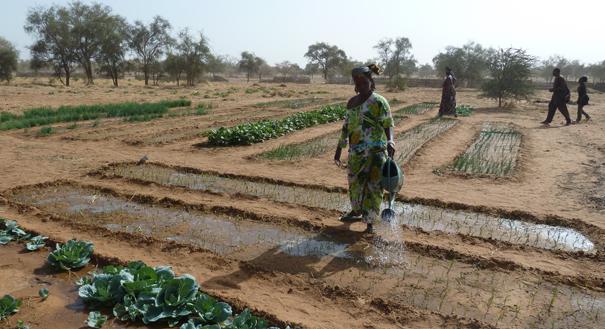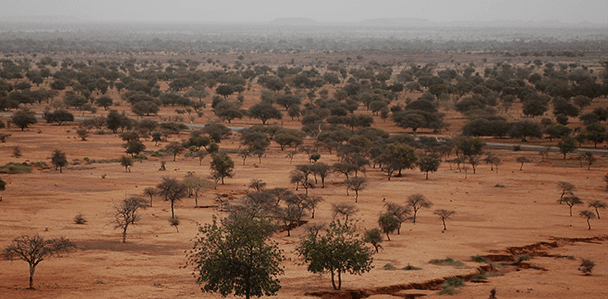Africa’s Great Green Wall is making progress on two fronts
About 40 percent of Africa is threatened by desertification — the loss of arable land to the encroaching Sahara. The Sahel, a semi-arid transitional zone between the Sahara desert and the savannah, is the focus of efforts to build a "Great Green Wall" to hold back the desert and provide jobs and sustainable development for struggling African nations.
When Africa’s Great Green Wall is finished, it will cross 11 countries, from Senegal and Mauritania in the west to Eritrea, Ethiopia and Djibouti in the east.
For those in charge of making this ambitious dream a reality, it’s not just about planting trees to hold back the desert.
“The Great Green Wall is about development; it’s about sustainable, climate-smart development, at all levels,” says Elvis Paul Tangam, the African Union Commissioner for the Sahara and Sahel Great Green Wall Initiative.
Development at all levels means sustainable land management to provide jobs and money to keep people in their communities and able to thrive in a harsh climate. Tangam says it’s a matter of life or death for millions, particularly young men.
“Every young person wants to be valued,” Tangam says. “In the African context, every young person, especially a young man, has the responsibility to take care of their family.”
Tangam says idle young men, who have no work and have seen crops and animals die, face terrible choices. They might join rebel groups, or terrorist groups like Boko Haram or join the exodus of desperate migrants trying to cross the Mediterranean on rickety boats to find work in Europe.
The idea of the wall of trees, while a decade old, remains more vision than reality, yet Tangam says a lot has been achieved in terms of cooperation.
“The first, biggest achievement of the Great Green Wall is the fact that people of those regions have accepted to work together, for a common goal,” Tangam says. “The second achievement is that each of those countries developed national action plans. That is the biggest achievement, because now they own it. It’s about ownership, and that has been the failure of development aid, because people were never identified with it. But this time they identify. This is our thing.”
And there has been success on the ground, according to Tangam. About 15 percent of the actual “wall of trees” is already planted.
“Senegal has reclaimed more than four million hectares of land along the Great Green Wall,” Tangam says. “They have planted more than 27,000 hectares of indigenous trees that don’t need watering. Many animals that had disappeared from those regions are reappearing — animals like antelopes, hares and birds that for the past 50 years nobody saw.”

Mauritania, Chad, Niger, Ethiopia and Nigeria are also showing promise. Some areas of these nations have developed market gardens and they now grow food for animals in the dry season, giving the young population work.
“Many young people who probably would have been joining the Boko Haram are now part of the firefighting brigades or part of the Great Green Wall brigade,” Tangam says. “They are in their communities because they have a source of income and they are putting value to their lives.”
Last December, the UN climate meeting generated firm pledges of $4 billion of additional funding for the Great Green Wall. The French government agreed to increase its investment in climate resilience and programs by 1 billion euros by 2020. The president of the World Bank pledged $1.9 billion for the Great Green Wall and other, related programs.
Still, the UN says that 100 million Africans are threatened by growing desertification as the climate changes and the worst drought in 30 years affects parts of the continent. The United Nations says two-thirds of Africa’s arable land could be lost by 2025 if that trend continues.
That makes any project such as this — that Africans claim as their own and believe in — both more vital and more likely to succeed. But Tangam and other stakeholders in the project agree, it will take at least a generation to make it a reality.
This article is based on a story that aired on PRI's Living on Earth with Steve Curwood
